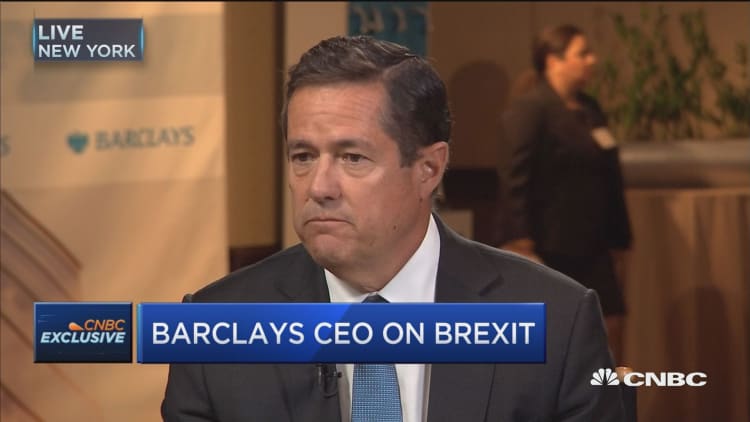Fitch Ratings painted a gloomy picture of the U.K.'s economic prospects on Tuesday, warning that the British government was poorly prepared for quitting the European Union (EU).
"It is very clear that the U.K. government has done no effective contingency planning for Brexit," Ed Parker, Fitch's head of Europe, Middle East and Africa sovereigns, said at a conference on Tuesday.
Fitch downgraded the U.K.'s credit rating from AA+ to AA immediately after the country voted in a referendum in June to quit the EU. The country is on "negative outlook," as Fitch is considering further downgrades in the medium-term. Its next scheduled review date is December 9.
The result of the referendum surprised pundits, with odds seen on a victory for "remain." David Cameron, who had campaigned for remain, resigned as U.K. prime minister following the vote and was replaced by Theresa May.
Parker said the U.K. was highly unlikely to retain full access to the EU free market for goods and services once it quits the bloc, given that May had committed to tougher controls on immigration. Greater control of national sovereignty, particularly regarding which immigrants can work in the country, was a key driver for Britons voting to quit the EU. The EU allows free movement of workers between its countries and the U.K. is a popular destination due to its language and relatively large and thriving economy.
"Theresa May has laid down a pretty strong marker that she is in charge," Parker said at Tuesday's conference.
"That priority … to take back control of borders … makes it very unlikely that people retain full membership of the market … there is very little incentive for the EU to cut the U.K. such a favorable deal," he later added.

Parker forecast that May would not invoke Article 50 — the clause in the EU's Treaty of Lisbon that allows countries to quit the bloc — until the first three months of 2017.
He added that negotiating an exit with the EU would be a "long and difficult process."
In June, Fitch cut the U.K.'s economic growth forecast for 2016 to 1.6 percent, down from the 1.9 percent expected for the referendum. The economy is now seen growing by only 0.9 percent in both 2017 and 2018, down from a previous forecast of 2.0 percent in each year.
"We see a long period of uncertainty facing the economy, which we think is going to hit investment," Parker said on Tuesday.
He added that the country would be in a "pretty needy and weak position" when negotiating trade agreements after quitting the EU.
The U.K. is one of 20 countries downgraded by Fitch so far this year.
Follow CNBC International on Twitter and Facebook.

